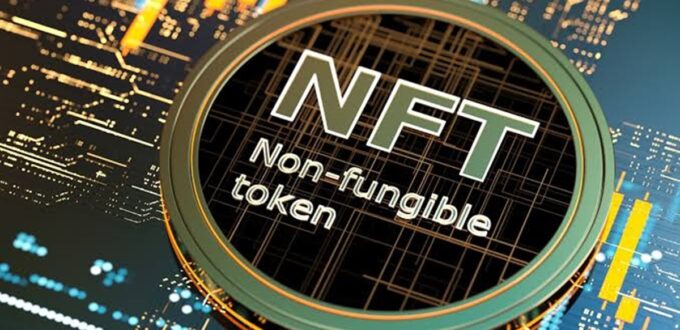As per a report, India’s online gaming industry is expected to grow to $2.8 billion in 2022
In April this year, when Dream Capital — the investment and mergers and acquisitions (M&A) arm of Dream Sports — invested in a cricket non-fungible tokens (NFTs) platform Rario, that set the tone for the next level of growth, in the gaming industry. According to a 2021 report by Deloitte, the Indian online gaming industry is expected to grow at a compound annual growth rate (CAGR) of 40% to $2.8 billion in 2022. With NFTs, gamers get the ownership of in-game assets via the use of blockchain technology, Ramkumar Subramaniam, co-founder and CEO, GuardianLink, an NFT start-up, told FE Digital Currency. “Along with the option of trading in-game assets, NFT based games reward gamers through its play-to-earn option. Web3.0 games are progressive compared to Web2.0 games,” he said.
What is to be noted is that NFT games are much more than just garnering crypto-collectibles in a wallet. These games are back with player interactions, purchases of avatars and weapons and through the play-to-earn model. This model allows gamers to earn from NFT games. According to industry experts, NFT in gaming industry is at a nascent stage and is expected to develop in the upcoming years, as blockchain based gaming projects are being built. “We expect an increase in revenue flow from NFT games in the next three to four years. As far as India is concerned, I believe that it has the potential for building an industry around NFT games,” Abhay Aggarwal, founder and CEO, Colexion, an NFT marketplace, said.
As per industry observers, NFT gaming is expected to capture 10-20% of market revenue in the upcoming years. The Indian NFT gaming industry which is still at a nascent stage, it is expected to grow at a CAGR of 40%. Reports have shown that youth looking to invest in play-to-earn games as a source of passive income is increasing. “With certain exchanges allowing users to convert their NFTs into cryptocurrencies, it is expected to contribute towards the growth in NFT gaming market,” Gaurav Mehta, CEO, Catax, a tax consultancy firm.
For Sreedhar Prasad, internet business expert, NFTs in gaming would be the most complicated, difficult to regulate, yet most transformational development to come in the near future. However, as per him, it would require clear regulation and transparency for a large country like India where there is an inherent fear of missing out (FOMO) in adopting new models among the digital youth. “The value of the creative elements of a developer and a gamer can be out of the game to the real world to trade. With almost anything able to become NFTs, the gamers to have a larger attraction to take this as a serious financial model, than just in game purchases and trade which was the earlier model,” Prasad added.
Industry experts expect that the NFT gaming industry will have around 500 million users in India, in the next couple of years. These games usually are created on the back of a play-to-earn model. This provides players a chance to earn money while they play. Additionally, gamers can monetise the play time through buying and selling in-game NFTs or through completion of targets in exchange for cryptocurrency rewards. Typically digital currency is used to trade on a blockchain marketplace, which acts as an auction house. It is believed that as a business, NFT games is a win-win for both developers and players as it allows the former to earn from their creations while the latter earns cryptocurrency by playing the game. “The Indian market can be built around NFT games. In terms of population, which consists of the young generation, I think that an economy around the online gaming industry can be created. As these games do not require a high Internet bandwidth, Indian gamers can get access of the servers without facing issues,” Subramaniam said.
Perhaps this is one of the reasons behind Dream Capital, leading the narrative. Rario raised $120 million in a round led by Dream Capital. This strategic alliance is believed will give Rario access to the 140 million user base of Dream Sports and its subsidiaries Dream11, DreamSetGo and KheloMore.

No Comments Yet